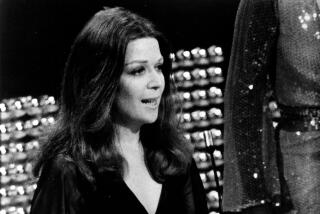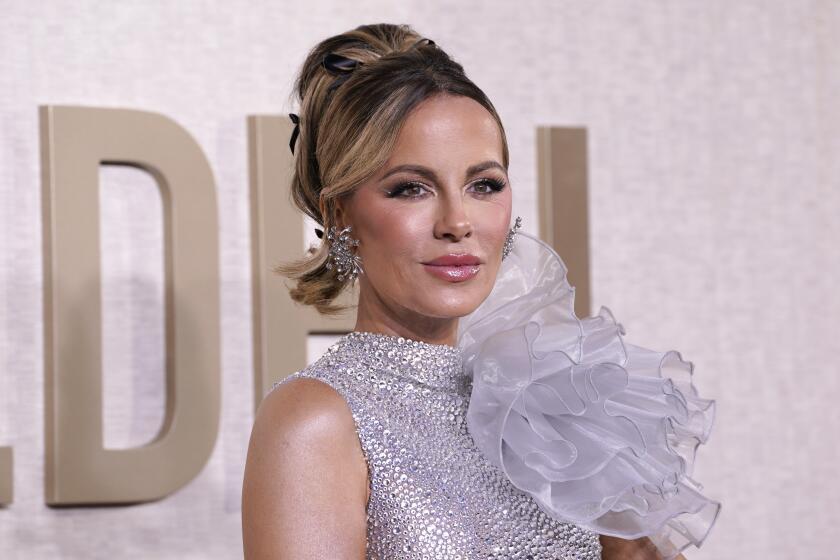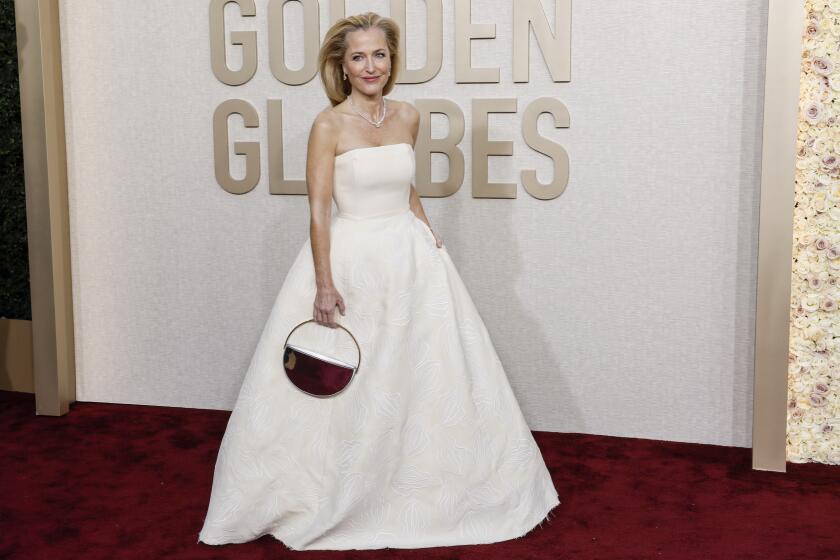‘Ted Lasso’ isn’t just a TV show. It’s a vibe
Jason Sudeikis and fellow comedian Brendan Hunt were wandering the streets of Amsterdam, high on mushrooms. This was about 20 years ago. Hunt waxed poetic for a couple of hours about the virtues of soccer.
“He starts getting into why it’s called ‘the beautiful game’ and explaining it to me on a philosophical level,” Sudeikis says. “He made it poetry about this sport that I was American-cynical to. I was a basketball player [he had attended community college on a hoops scholarship]; I’m used to scores being 120 to 108. ‘Let’s watch this game that ends 0-0.’”
Yet something stuck. Starting in 2013, now-”Saturday Night Live” alum Sudeikis and Hunt appeared in promos for NBC’s coverage of England’s Premier League. Sudeikis played Kansan football coach Ted Lasso, imported to helm a top-level team in soccer, a sport he knew nothing about.
“My partner, Olivia [Wilde], said, ‘You guys should do that as a TV show or a movie or something’ and that’s when the wheels started turning: ‘OK, but why would he take the job? Maybe his marriage isn’t well ....’ ”
In 2020, the character got his own Apple TV+ sitcom, “Ted Lasso,” with soccer jokes far from the only goal. Ted and his faithful assistant Coach Beard (Hunt) come to England to take over a Premier League team, not knowing they’re being set up to fail by its vengeful owner, Rebecca Welton (singer-actress Hannah Waddingham), in a kind of “Major League” scenario.

Trailer for Season 1 of Jason Sudeikis’ Apple TV+ sitcom, “Ted Lasso.”
But deeper character motivations separate the show from the rest of the division; that and the heart of gold warmly beating at its center. Both are apparent in the title character, as sweet a guy as you could hope to meet. He’s thrown into the hungry meat grinder of high-stakes soccer, unfazed by diva players, vicious press and hordes of hooligans. The man loves to coach, whatever he’s coaching. But unlike the “Doc Hollywoods” or “Schitt’s Creeks” of the world, in which mean folks land among nice people and are changed by the environment, this nice person changes his mean environment. He slowly has a positive effect on everyone around him.
“I make jokes about it being similar to Della Reese in ‘Touched by an Angel’ or Michael Landon in ‘Highway to Heaven,’” Sudeikis says. “I’m sure there’s Jimmy Stewart movies like that. But, yeah, that was 100% the idea, that good and evil exist in the world and how we respond to it is all you really have control over.
“Writing the pilot, I would tell Brendan and [co-creators Joe Kelly and Bill Lawrence], ‘Ted is mushrooms. He’s the fresh snow. He’s a reflection of whatever you see in him, initially.’ And then you get deeper and deeper as the storytelling goes on,” he says, acknowledging inspiration from Michael Pollan’s book “How to Change Your Mind,” about psychedelics, including their use to treat emotional conditions.
Themes of parenting echo throughout the show.
“It’s about the repercussions of good, bad and absent fathers. The three-season arc is rooted in that. Sometimes a good mentor — a good coach, parent, partner (romantic, platonic or creative) — is someone that can see more in you than you see yourself, because your baggage disallows you,” he says.
“Your intuition is pure, and we’re born these golden Buddhas, and then we take on all this muck through our life. A good mentor can scrape a little of that off, let you see your gold, and then you start scraping it away.”
Sudeikis says one of the show’s mottoes, paraphrasing Quincy Jones, is to “Leave space for God to walk in the room.” For instance, he knew before casting the show there would be a breakdown in a karaoke bar. He didn’t know who’d be singing, perhaps him. Along came Waddingham. He didn’t know what the song would be, then his kids kept playing “Frozen” in the other room.
Waddingham says, “I really didn’t want to be singing ‘Let It Go.’ I’ve literally managed to shout every producer down, ever, to not make me sing that song in concerts. It’s too hard. Too many people sing it. Jason was like, ‘That’s fine; if you can find a song that’s more perfect for that moment, then brilliant, knock yourself out.’ And of course, I didn’t find anything so perfect.”
Co-composer Kristen Anderson-Lopez, a fan of the show, effusively tweeted to Waddingham after her version aired. “I read that tweet at, like, 2 a.m. at the end of a night shoot, and I genuinely thought I was hallucinating,” says Waddingham.
But that’s in line with what the response has been to this positive sitcom. The critical reaction was initially cool but has warmed considerably as the series has gone on, just as Ted has won over characters.
Waddingham says, “I’ve never received so many personal messages across social media — friends, people calling me, people’s parents calling me — and instead of saying, ‘I love the show,’ every one of them has said, ‘Thank you.’ ”
Sudeikis says, “I’ve said it before, but it’s just the truth: ‘Ted Lasso’ is not a show. It’s not a character. It’s a vibe.”
More to Read
From the Oscars to the Emmys.
Get the Envelope newsletter for exclusive awards season coverage, behind-the-scenes stories from the Envelope podcast and columnist Glenn Whipp’s must-read analysis.
You may occasionally receive promotional content from the Los Angeles Times.











